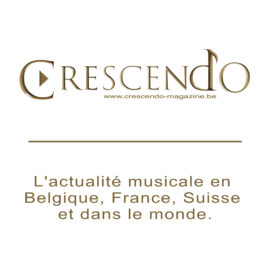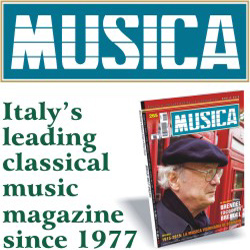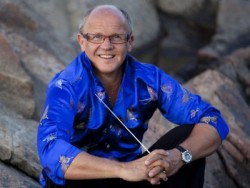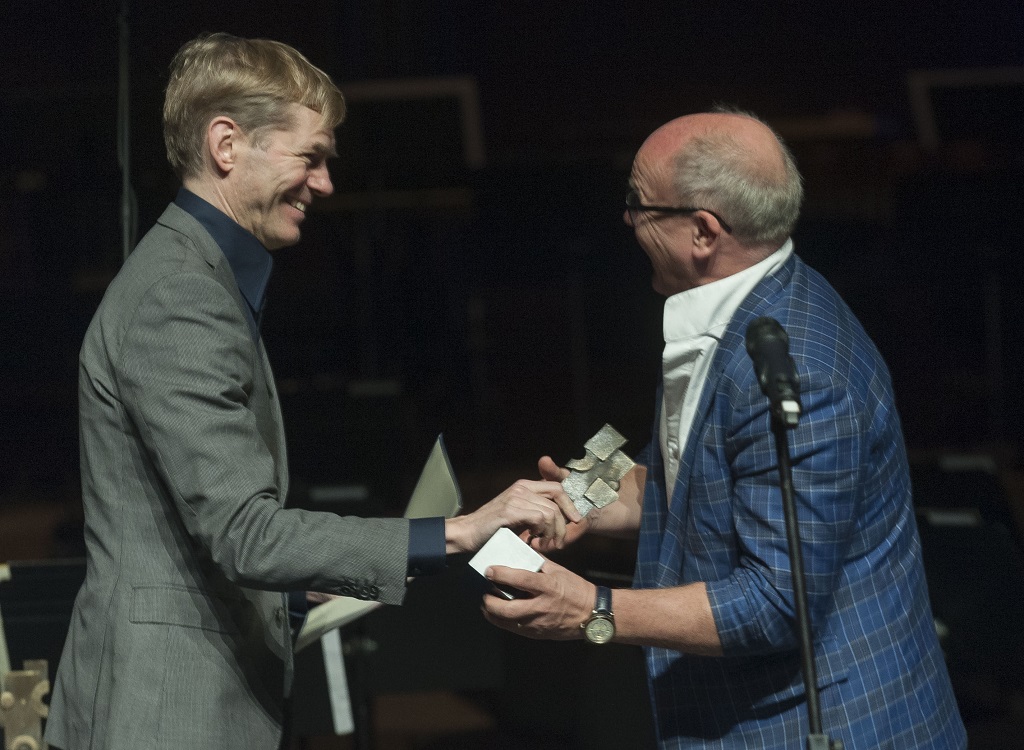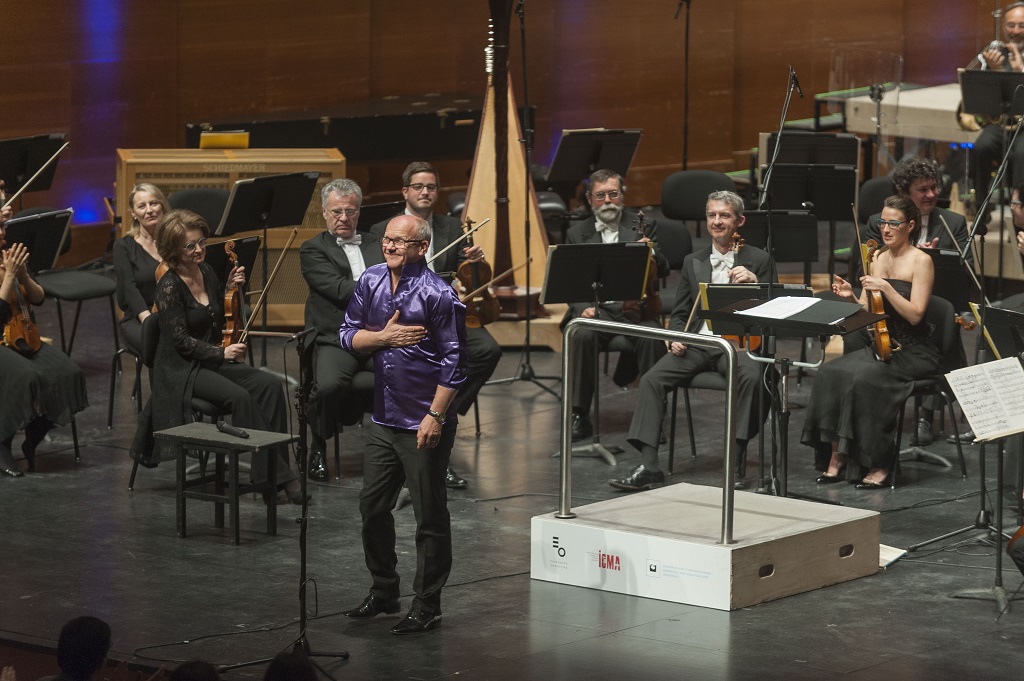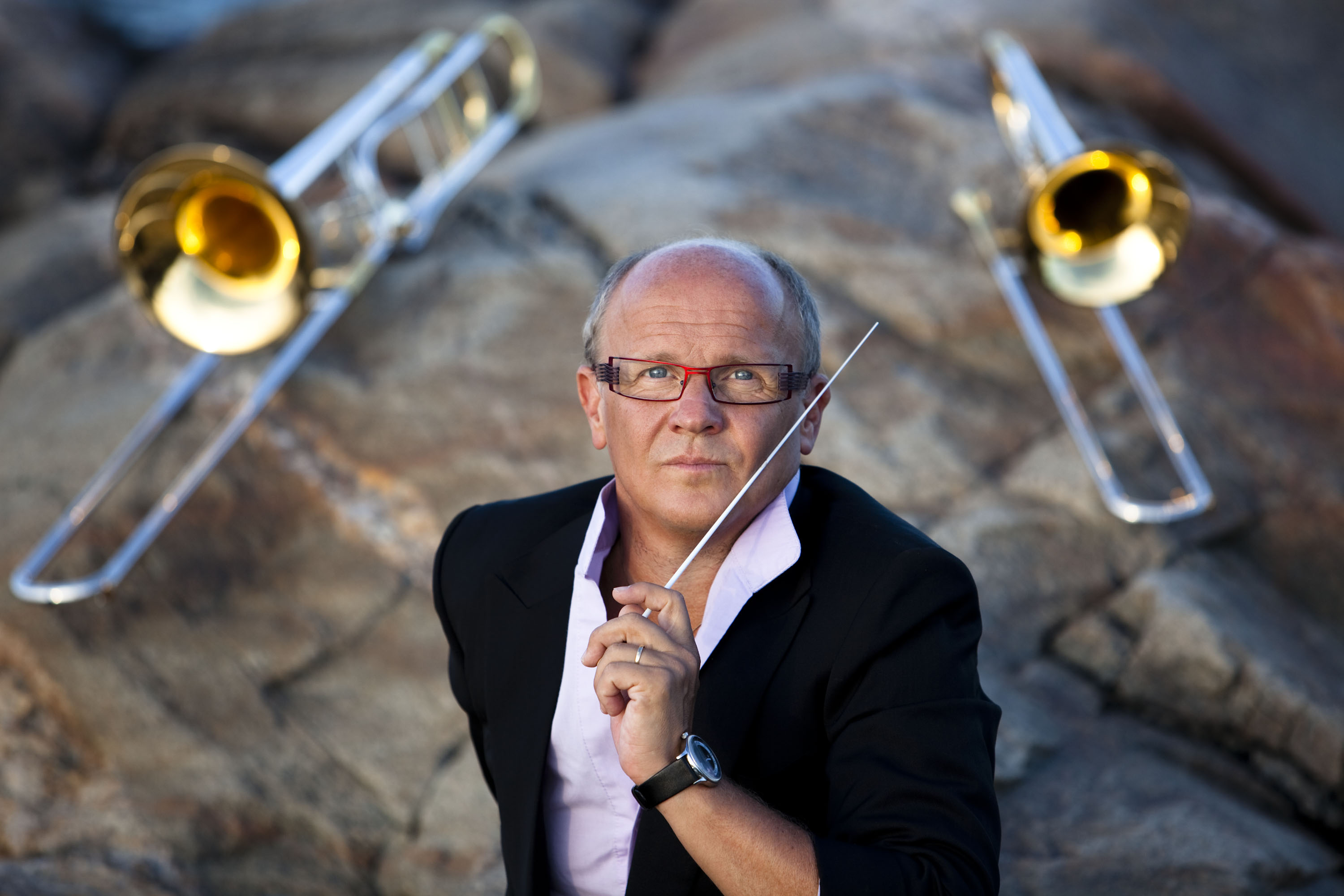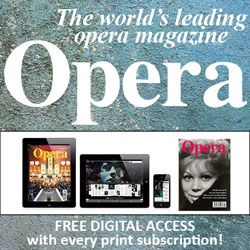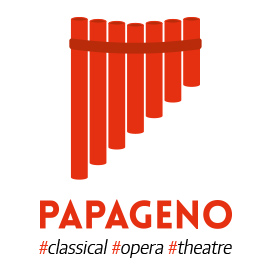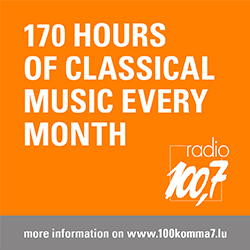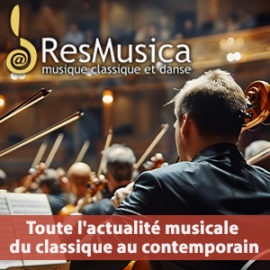Jury members Nicola Catto (Musica) and Andrea Meuli (Musik + Theater) met ICMA’s Artist of the Year 2016 for an interview. Read this amazing piece…
Christian Lindberg, You once said that the trombone is the instrument of the last century. Do you still think that it’s the instrument of the current one?
I don’t think so. I’m a little bit disappointed. You see, I have done my work with the trombone and I’m going now into different areas. Of course, I will continue premiering trombone concertos. In 2017, I will premiere my concerto No. 100 by Per Egland, the Swedish composer. But generally things are not going like I would have hoped. I had some masterclasses with really talented young trombone players. And I encouraged them very strongly to follow and try making solo careers. But everyone goes to orchestras (he laughs).
Why? For safety?
Yes, for safety. Everyone plays it safe.
Are there enough orchestras for all the players?
Well, the whole business, of course, is shrinking. There are less and less opportunities. I think it’s probably due to a lack of creativity. I mean, if you are a really talented trombone player, I think there should be a place to take a position as a full time soloist. I would have hoped that by now there would be 2 or 3. But as I say, they take the chance to get into an orchestra, or they take a different way, such as becoming a lawyer or something like that (he laughs).
So, you cannot be a soloist and an orchestra member at the same time?
No! Would you think that Itzhak Perlman could have a job in an orchestra as a concertmaster? No, it would not work. And it does not with the trombone either.
But there are instrumentalists doing both careers.
Yes, but they will never then reach the same stature as the piano soloist or a violin soloist. And since there are so few really well known soloists, the musical world did not have the chance to get more solo pieces and or concertos.
Was that the only reason?
No. In the 20th century there was a big influence from jazz. But then, of course, the jazz music and rock music took their own path. And they stole a lot of the market from us who have acoustical instruments. As acoustical instrumentalists, I think, we were a little bit too conservative and a little bit too afraid.
Even the brass?
The brass tried, I think. We tried very hard. But it was not so easy. It also requires intellectual thinking. Maybe – I don’t want to sound like sort of a snob – but intellectual art itself was not so much part of the brass education.
What was the reason for you to start conducting?
It was an orchestra who talked me into it. I was doing a concert, a new piece, where the conductor was not prepared… (They laugh)
It’s not a new story (They laugh).
And I was very diplomatically leading the thing. To the musicians, yes. They were the members of Northern Sinfonia. This orchestra then came to me and said “Wow, you should really be a conductor.”
When was it?
It was in 1997. And I said “No. This is not what I want to do.“ But they continued to ask me. They said: “Please try it! You should try it at least!” And then I gave in and said: “Ok. Three years and I’ll come in October 2000.” So I had three and a half years to prepare. I took a lot of lessons from the great conductors I worked with. It was a very good school. I learnt a lot from Leif Segerstam, I learnt also something from Neeme Järvi and Paavo Järvi. I learnt things from Gilbert Varga, also from Esa Pekka Salonen. There were many of them… Zubin Mehta. So it was a great education.
I read on your website that you don’t want to be labeled as a composer and to say something about what you wrote will be nonsense. But maybe some composers who wrote for you had an influence on your style.
I don’t want to call it “style”. Because style becomes something…
Cliché?
No, basically something you then copy. I look for what’s original… Why is Berio so special? Why is Xenakis so special? Why is Takemitsu so special? Because they have their own label, their own character. And then many composers see that they are successful, so they say: “Ok, if I write like that I’ll be successful.” In my case, I want to be very, very clear and completely free to ask from inside, really from inside my brain and see what is coming out. And anything could come out. Ugly music, beautiful, funny… anything. It’s a little bit like what a five-year-old little girl could do when drawing. She doesn’t make any attempt to be good, because she just does it because it’s out of her creativity. It’s natural, and that natural creativity is extremely important to keep.
Is it possible to be, in that way, free from any patterns?
No (he laughs). But it’s possible to try. I start absolutely free, blank. And for a piece I always create different embryos, different ideas. From that on, I let them be there for a while. And then I look at them, and I see which ones are original, which ones are copies, which ones are bad, which ones are this or that, and then I find like 4 or 5 that let me feel: “This is good”. Then I start to build a piece around them.
But you’re thinking yourself as a soloist when you write, or not necessarily?
No! Music always comes first. And then of course, it will also depend on the commission. Because so far, I’ve only written on commissions. I wrote one piece as an experiment, and since then I’ve just been loaded with commissions from all the orchestras.
And where is the audience, in your composing?
I’ll tell you what I experienced. I have a very, very good friend, who is a brain specialist. He doesn’t know much about classical music and I introduced him to it. He’s very intelligent and very well-educated, but classical music is something that he ignored. He went to my concerts and said: “I feel so far away from you. Why do you wear those clothes?” I said: “We have to wear these clothes. This is part of it. It’s beautiful, I thought.”- “No, it’s not. I feel excluded.” And then I decided to try a new way. When I did the 75th anniversary of the BBC Symphony, I tried a new dress code. I had leather pants and a black shirt. I was a soloist, Joshua Bell was the other soloist. When I was walking in the green room, everyone was looking at me as if saying: “What the hell is he doing? Is he crazy?”…and I felt like “Damn it, damn it, this is not going to work. Damn my friend. Why did he get me into this horrible thing?”
I came on stage after Joshua Bell who had a very polite applause. Yet, when I came on, and just by showing this dress, the audience went completely wild. I thought “Yes! Fantastic!” and then I played. And the audience was absolutely overly enthusiastic. I went backstage and Joshua said to me: “Why didn’t you tell me? I looked stupid besides you! You stole my show!” He said it just for fun. “I should have worn that too”, he said. And then afterwards, the general manager of the BBC Symphony made a long speech about the orchestra and everything, ending the speech by saying: “And by the way, we have something to learn about dress code from our Swedish colleague”, which shows that it worked. And since that day I never used tails. Small details like that can help. I don’t think we should at all go too far for selling out and doing sort of gimmicking things. But we have to open and loosen up and communicate with the younger audience.
Do you think that there would be a chance to catch more young people?
Absolutely!
If there was less stiffness…
Absolutely! Young people really can like classical music. Not necessarily when they are 20, but when they are 30, getting into 40, they look for that type of music, which is little bit more than a rock song. And if they look into it, they try to see the music itself. It catches people. It’s just, when they go to a concert, they look so boring.
Music itself is unbelievable. And Mozart will always live, Beethoven will always live, Bach… all these composers… But we should not be like an interference with that sort of dress and that snobbish attitude.
As we give many awards to CDs of recorded music and since you made a lot of CDs: Do you think that CDs are just a part of the past or can they survive? Or let’s call it “recorded music”.
Recorded music will definitely stay.
Why do you record music? What’s the main purpose when you decide to record a concerto or something else?
Just think about a live concert. It’s a one chance. If you imagine a person drawing a painting, that would be like the audience watching him while he works and re-works. A recording is like making a drawing. You can scratch out, you can get perfection. So, a recording, for me, is giving me a chance to bring the music into a different level, even better than you can do it in a live performance.
It’s not something that is untruthful.
No. It’s a chance to put it on a different level. Because when you give one concert, when you go back and listen to it you find this bar was so and so… this bar was even better so. Always. And that’s live music. And that’s fantastic. It’s not something to listen to again. It’s one time. And it has its own thing. But a recording is a chance to also place the microphones in the ideal position. And nowadays you fantastic Tonmeisters, notably in Germany. They are incredible. So you can sit, with all your ears at the perfect place in the hall, which you’ll never get in a hall. And you can get that and you can sit in your own living room and experience this. I think it’s really fantastic.
Do you think that you can hold the same concert tension in that atmosphere in the studio?
Yes! Absolutely! You can, if you have a great Tonmeister and if you have a good relationship with the orchestra.
At the end are you are cutting?
Cutting and cutting!
Cutting and cutting?
Yes. But, it’s always with the music as a main thing. So, it’s a very complicated situation. You cannot do it, unless you have a Tonmeister who understands everything, who understands music. And you yourself, understand and can listen very, very, very carefully, and sit for time after time and your ears adapt to the situation.
Is it not a bit dangerous to get something sterile?
No. I don’t think so at all. Of course, there’s a danger if you let it go that way.
Maybe it may happen that some listeners listened to your recording and then the same piece from a live concert, this making you feel like in competition with yourself. It must keep this high level.
No. Not at all. I think I will do it completely different and it will be a completely different experience for the listener. I expect one thing. One thing is very important for me. When I was 32, this was I think my 10th CD. It was recorded with the Radio Symphony Orchestra and Leif Segerstam. It was Serocki’s Trombone Concerto. And we did this in concert. And at that time, we had very short time. So, with the orchestra, basically, you had to play perfect every time. Because there was no chance of editing. Today you can edit everything. But at that time you couldn’t. So, I was practicing and practicing and I was looking for that perfect performance. And I did play it in a live concert before the recording. That was my most perfect concert ever. From the beginning to the end, I played everything the way I intended. There was not a single mistake. And I thought “Wow! Finally, I got it.” And I waited for the applause to be completely wild. Because when I made mistakes they were always enthusiastic and I thought: “Wait until I play it perfect.” And I played perfect. And the reaction was very mild. I said: “What? What? They don’t appreciate it.” So, this is the way it is. They wanted to see you make mistakes. They wanted it to be live. They wanted to see you taking the risks. And they don’t care about these mistakes. I think that’s very important.
To go back to the very beginning of your musical life, what was the argument behind your decision to learn the trombone?
It was Jack Teagarden, the jazz trombone player who played with Luis Armstrong. I was 17 and we were 6 people, I mean we were a gang in school. And there was one guy who had a father who had all these 78’s and with Luis Armstrong and Jack Teagarden and Dixieland. And I thought it was fantastic. So, we started a group like that.
With jazz?
Yes, with jazz. I fell in love with this Jack Teagarden, the way he sang and the way he played, so, I got the trombone, a very cheap one, and I started to learn. And then I got a teacher. Then it went into classical music. That time I wasn’t sure what I was going to do. But one day this classical music teacher said: “You have to decide one either jazz or classical music” I don’t know if it was a good decision, but I took the decision for classical music. I should have been little bit more open. Maybe I would have been a jazz player, today.
Or both…
Yes, both. But…
At the moment are you playing jazz as well for yourself?
Yes. When we have parties or things like that, I do that. But I don’t do that publicly.
You’re also interested in the ancient instruments, as well as performing and practicing them.
Of course, my brother is a lute player. He tours a lot with that. He is a great purist. So, I have done projects like that. But I just limited it to certain projects. And I listen to it a lot.
You don’t have enough time?
No! Now all the Pettersson symphonies take a lot energy from me. And also composing takes a lot.
Are you recording all the Pettersson symphonies?
All of them. 17 in total. Fantastic! I’m doing them with the Norrköping Symphony Orchestra. We are almost done. We have only 5, 12, 7 and 17 left. And then we’ll have the whole cycle.
It’s a rare repertoire…
Yes, absolutely. But it’s doing well. It’s also selling.
You are known for caring a lot over mouthpieces?
Yes, I make my own mouthpieces and I make my own instruments. I have a fantastic collaboration with a cornet company. Conn-Selmer, which is the biggest and best trombone-maker. They have been over 100 years now. We actually built a completely brand-new instrument, called CL2000. We started in 1988 and we built it until 2000. And I built my own mouthpieces too, of six different sizes.
What’s different?
Many things! The rim size, the depth, the thickness of the rim and everything. I was fortunate enough to have a father-in-law who was an instrument-maker and we could do a lot of experiments. We experimented for 6-7 years with mouthpieces. It was very exciting.
And what about protecting your teeth?
Yes, I have them all.
Because if you have an accident, it’s over…
I have it all in my studio. I have the gypsum teeth. Otherwise you’re lost.



